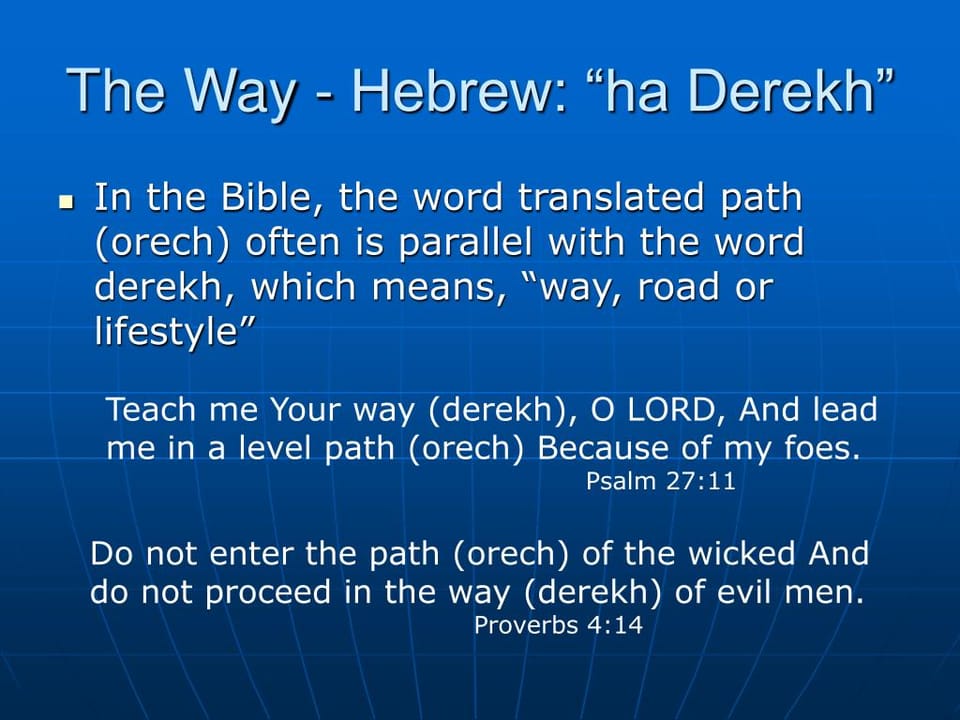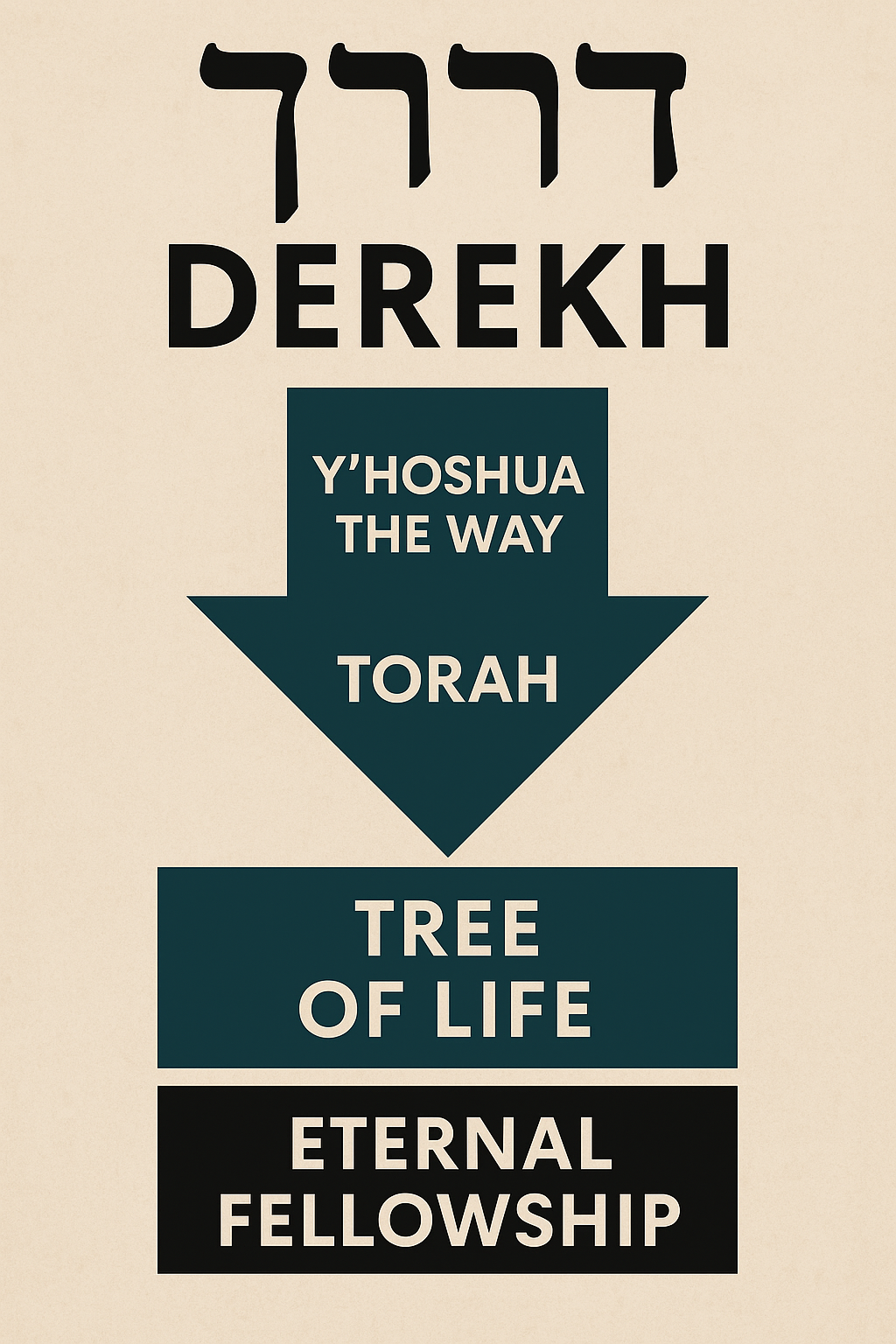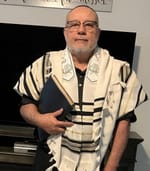DEREKH The 'WAY'

“Y’hoshua said to him, ‘I am the Way, the Truth, and the Life! No one comes to the Father except through Me.’”
— Yochanan (John) 14:6, CJB
What Is the “Way”?
Do you know why Y’hoshua said He was the “WAY”?
The Hebrew word for way is derekh (דֶּרֶךְ). It often refers to the path or manner of living — the direction your life takes through the choices you make.
Every decision is a step on a path. When we choose rightly, our path leads to blessing; when we choose wrongly, it leads to destruction. Yet even if we have walked the wrong road, Avinu Elohei can redirect our derekh and lead us back to Himself.
“In all your ways acknowledge Him, and He will make your paths straight.”
— Mishlĕ (Proverbs) 3:6, TS2009
Y’hoshua — The Living Derekh
When Y’hoshua said He is the Way, He was revealing that He walks ahead of us, showing us how to live.
Those who call themselves His talmidim (disciples) are to follow in His footsteps and walk in His derekh.
“He who says he stays in Him ought himself also to walk, even as He walked.”
— Yochanan Aleph (1 John) 2:6, TS2009
The first use of derekh in Scripture appears in Berĕshith (Genesis) 3:24, when Y’hovah stationed cheruvim to guard the “way” back to the Tree of Life.
Y’hoshua, by calling Himself the Way, was declaring that He is that derekh back to the Tree of Life — to fellowship, restoration, and eternal life with Y’hovah for all who believe.
The Alef and the Tav — The Eternal Way
“I am the ‘Alef’ and the ‘Taw’, Beginning and End,” says יהוה, “who is and who was and who is to come, the Almighty.”
— Ḥazon (Revelation) 1:8, TS2009
In Hebrew, Alef (א) is the first letter and Tav (ת) is the last — just as Alpha and Omega are in Greek.
By identifying Himself as the Alef and the Tav, Y’hoshua HaMashiach declared Himself the beginning and end — the full revelation of Y’hovah’s truth.
He is the Way (Derekh) that leads us back to the Tree of Life, the Torah of Y’hovah.

What Is the Tree of Life?
“My son, forget not My Torah, but let your heart guard My commands.”
— Mishlĕ (Proverbs) 3:1
“She is a tree of life to those who take hold of her, and blessed are all who retain her.”
— Mishlĕ (Proverbs) 3:18
The Tree of Life is a symbol of the Torah — the wisdom and instruction of Y’hovah.
The Hebrew word Torah is feminine; therefore, she is called “a Tree of Life” to those who grasp her.
Keeping the commandments is the same as partaking of the Tree of Life.
“If you love Me, keep My commandments.”
— Yochanan (John) 14:15
“Blessed are those who do His commandments, that they may have the right to the Tree of Life, and may enter in through the gates into the city.”
— Ḥazon (Revelation) 22:14
Overcomers and the Tree of Life
“He who has an ear, let him hear what the Spirit says to the assemblies. To him who overcomes I shall give to eat from the Tree of Life, which is in the midst of the paradise of Elohim.”
— Ḥazon (Revelation) 2:7; cf. Berĕshith 2:9; 3:22–24
The word Yisrael means “one who wrestles and overcomes.”
A true Israelite believes that Y’hoshua is the Mashiach and walks according to Torah. These are the overcomers who are given access to the Tree of Life — restored to fellowship and eternal joy in the presence of Y’hovah.
Torah Is the Way (Derekh)
“And you shall teach them the ordinances and the Torah, and show them the way wherein they must walk and the work that they must do.”
— Shemoth (Exodus) 18:20
The Torah is not a burden — it is the roadmap of life.
Through it, Y’hovah reveals His derekh, His pattern for living, His way of holiness and love.
To walk in Torah is to walk in Y’hoshua, the living Word made flesh.
He is the Derekh that leads us from the exile of sin to the Tree of Life, from separation to restoration, from death to life eternal.

Walking the Derekh Today
In a world full of crooked paths, the Derekh Y’hoshua calls us back to simplicity — to walk as He walked:
- in truth,
- in obedience,
- in love, and
- in fellowship with Avinu Elohei.
This is the WAY that leads home.
By Rabbi Francisco Arbas
📧 franciscoarbas.yisrael@gmail.com
Following His ‘WAY’ — Netzari Mashiach Judaism

Comments ()